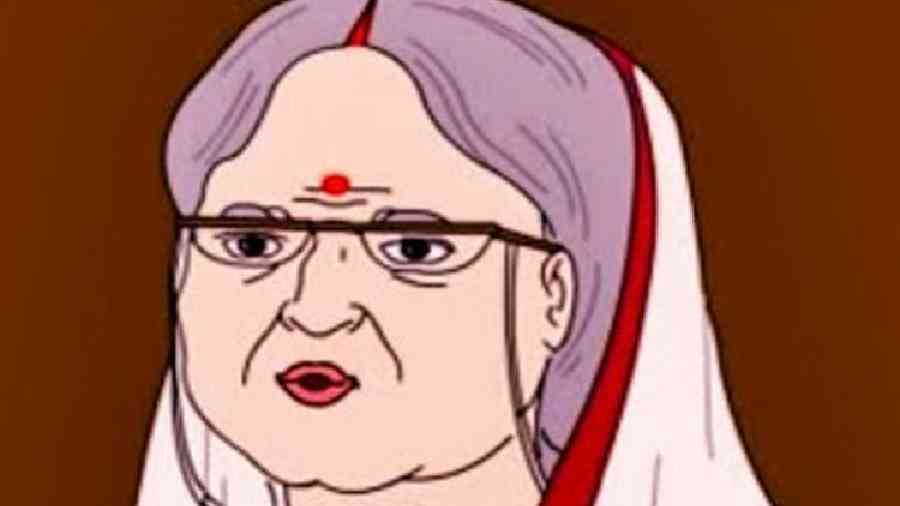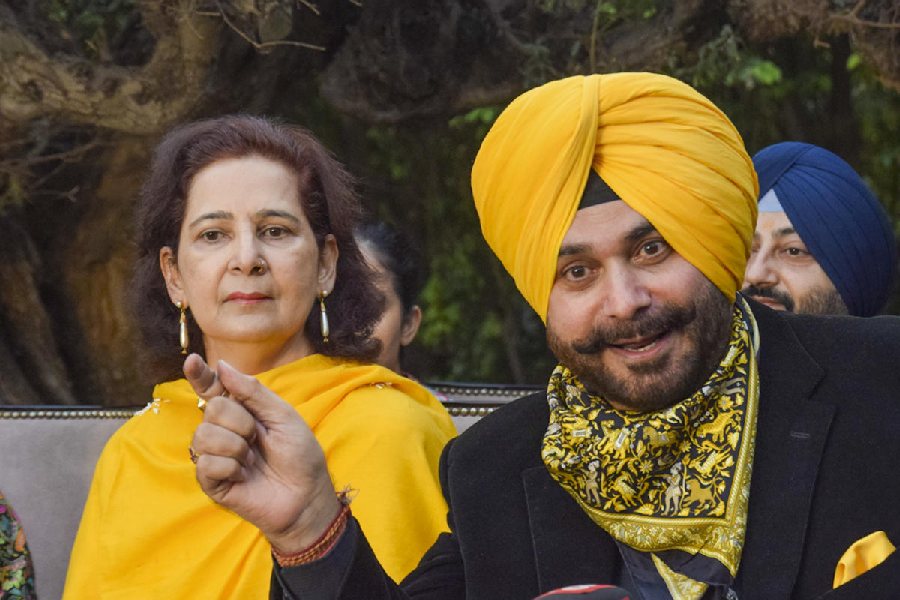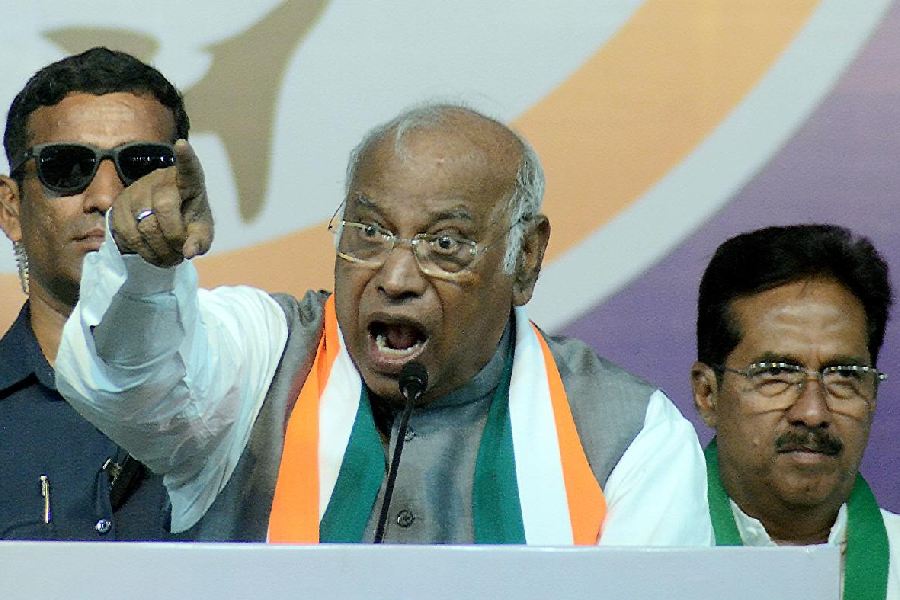Food fetish
Sir — When not scaring children, ghosts live a full life just like corporeal humans, at least in the Bengali imagination. They reside on the mog daal of trees or in the shadowy recesses of derelict mansions and perform daily chores like humans and even socialise over dance and music. But what makes Bengali ghosts perhaps most like flesh-andblood humans is their soft spot for food. In Thakurmar Jhuli, rakkhoshs and rakkhoshis polish off stables full of horses and elephants, devour humans whole and chomp on peas made of iron. But as in life, fish is beloved to all Bengalis even in the afterlife.
Sucharita Mondal, Calcutta
Grave charges
Sir — The Union finance secretary, T.V. Somanathan, has dismissed the crisis brewing in the Adani Group as a non-issue from the macroeconomic perspective. This trivialises the allegations of fraud levelled against the Adani Group. The exposure of government-controlled entities, such as the State Bank of India and the Life Insurance Corporation, to the group has also been brushed off as being “well within limits”. This is a worrying perspective. Public money that has been invested in the Adani Group is depreciating in value. It is clear that the government is not going to swing into action to investigate the truth of the charges against the Adani Group.
S.K. Choudhury, Bengaluru
Enquiring minds
Sir — The Greek word, skepsis, means investigation (“Question hour”, Feb 1). A sceptic, then, is nothing but an enquirer. Not all ancient philosophers who are now seen as belonging to the school of scepticism would see themselves as such. Nevertheless, they all embraced ways of life that were devoted to enquiry. On reading Plato’s “Socratic Dialogues”, one is struck by the fact that Socrates hardly advances any answers of his own. Instead he forces other characters to question their own beliefs. This line of questioning is called the famous Socratic Method, making Socrates the original sceptic. These questions posed by Socrates led his disciple, Plato, and, in turn, Aristotle to seek answers that became the source of all modern philosophy.
Tathagata Sanyal, Birmingham, UK
Sir — The article, “Question hour”, by Uddalak Mukherjee brought to mind the words of some eminent people on the importance of doubt. Alfred Tennyson wrote, “There lives more faith in honest doubt...than in half the creeds.” Karl Marx, on the other hand, declared that his motto was, “De omnibus dubitandum”, an aphorism attributed to the French philosopher, René Descartes.
Shivaji Bhaduri, Howrah
Error in judgement
Sir — Swapan Dasgupta enumerates the improbability of a revival of the Congress after the Bharat Jodo Yatra undertaken by Rahul Gandhi (“Image makeover”, Feb 3). He contrasts the BJY with the unforgettable rath yatra that was taken out by L.K. Advani and the Bharatiya Janata Party. He argues that in spite of the benefit of a well-established electronic media, the BJY is unlikely to succeed as people know that Rahul lacks political skills. Yet, it is obvious that Rahul has matured over the course of the Yatra. While the Congress might not defeat the BJP in the general elections of 2024, Rahul has certainly managed to shake the saffron party out of its complacency.
Iftekhar Ahmed, Calcutta
Sir — Swapan Dasgupta believes that not even the positive momentum generated by the Bharat Jodo Yatra poses a challenge for the prime minister, Narendra Modi. What, one wonders, does Dasgupta have to say about the impact of the Adani Group scandal?
Anthony Henriques, Mumbai











